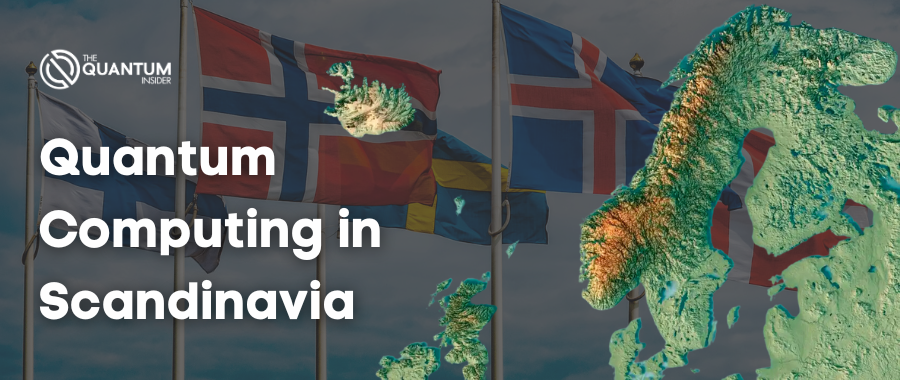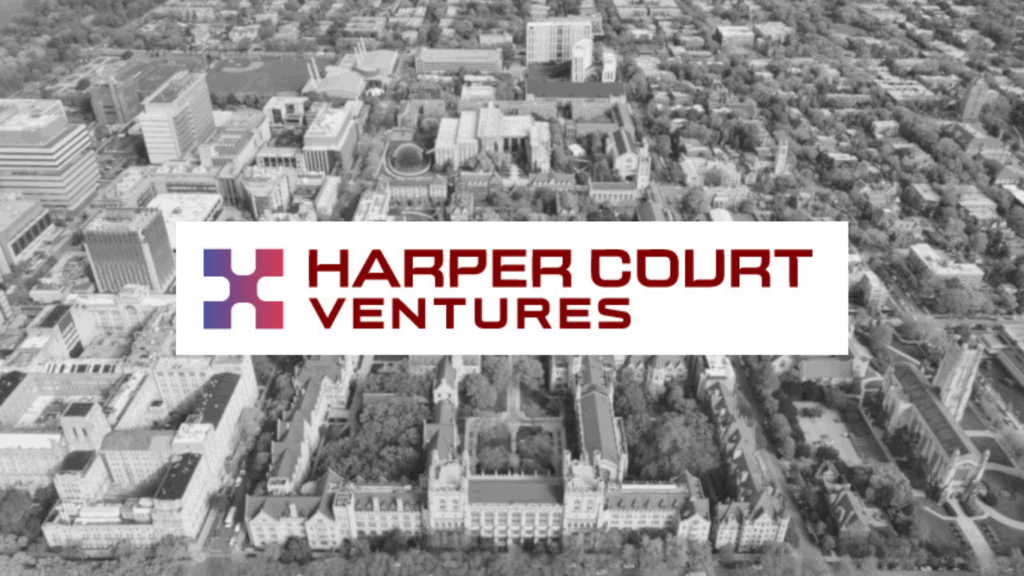Introduction
The quantum technology industry has witnessed tremendous growth and innovation in recent years, with countries around the world investing heavily in this groundbreaking technology. Among the global players in this arena, Scandinavia — comprising Norway, Sweden, Denmark, Finland, and Iceland — has emerged as a prominent hub for quantum research and development. Fuelled by a strong commitment from governments, flourishing academic institutions and pioneering private sector initiatives, Scandinavia has firmly established itself as a driving force in the quest for building quantum technologies.
Government Position
One of the key factors that have contributed to Scandinavia’s quantum computing success is the support and funding from governments across the region. Governments recognize the transformative potential of quantum technology and have committed substantial resources to quantum research and infrastructure.
Although Denmark and Finland have national initiatives that are ostensibly more advanced than those of the other countries it’s only a matter of time before they start to develop quantum technology at the state level.
Norway
Norway has been investing in quantum technology through its Research Council of Norway, which actively funds quantum-related projects. The council’s emphasis on interdisciplinary research has fostered collaborations between quantum physicists, computer scientists, and other experts. Norway has witnessed notable advancements in quantum algorithms and quantum error correction techniques.

Another in Norway is the Gemini Center on Quantum Computing, an interdisciplinary group of Norwegian researchers from the University of Oslo, the Norwegian University of Science and Technology (NTNU), and SINTEF is one of Europe’s largest independent research organizations. It aims to promote quantum technology in Norway, establish contact with internationally leading expert groups, and collaborate with industrial partners.
Sweden
In Sweden, the government’s focus on quantum technologies is evident through its collaboration with leading research institutions. For instance, the Stockholm-based KTH Royal Institute of Technology houses the Center for Quantum Technology, where researchers explore various aspects of quantum computing.
Denmark
Denmark’s commitment to quantum technology is also evident in the establishment of the Center for Quantum Devices (QDev) at the Niels Bohr Institute in Copenhagen.
Another important point to make is that the government’s first quantum computer is expected to be fully functional in 2034. The country already has one of the strongest quantum ecosystems in the world and is looking forward to welcoming quantum companies from NATO member countries to Denmark. Helping it get to this point, the country aims to allocate one billion Danish Kroner towards research and creativity, subsequent to initiating the initial phase of a National Strategy for Quantum Technology. This will solidify Denmark’s stance and dedication in the realm of quantum studies. The objective is for Denmark to possess one of the foremost quantum exploration settings worldwide and to possess the capacity to proficiently transform research into novel, practical technology to tackle global predicaments. his investment is part of a new strategy for quantum technology, which aims to maintain a long-term focus on the development and application of quantum technology in Denmark.
Finland
As a Finnish, fully state-owned limited liability company, VTT uses science and technology to help its customers create new businesses and address global challenges. In addition to its expertise in superconducting, photonic and semiconducting technology platforms, it aims to become a leading foundry for producing quantum computers and providing services that facilitate the practical application of quantum computing.
Iceland
The quantum computing landscape is still emerging in Iceland, and still awaits major collaborative efforts with international research institutions and investments in quantum research.
Research
Scandinavia boasts world-class research institutions at the forefront of quantum computing exploration. These institutions have become hotbeds for groundbreaking research and collaborations with international partners.
Norway
Norway’s University of Oslo is renowned for its research on quantum algorithms and quantum error correction.
Sweden
Sweden’s Chalmers University of Technology is another notable player in quantum research, specifically in the field of quantum materials. The Wallenberg Centre for Quantum Technology (WACQT) is a national research program, and is coordinated from Chalmers and aims to take Swedish research and industry to the forefront of quantum technology.
Stockholm University’s Condensed Matter and Quantum Optics Division (KOMKO) conducts research on fundamental aspects of quantum phenomena in light and matter and has a number of potential applications in quantum information technology, quantum electronics and nanotechnology.
Denmark
The University of Copenhagen’s Quantum Optics Center (QO) has been a pioneer in quantum communication. The center’s research on quantum networks has implications for secure communication, a vital aspect in the era of data-driven economies.
Founded in 1921, the Niels Bohr Institute, out of the University of Copenhagen, researches a diverse array of physics domains. Its pursuits involve extensive research and instruction in a wide spectrum of fields, including quantum computing and communication, astrophysics, particle physics, computational physics, solid-state physics, climate and geophysics, as well as biophysics.
The Technical University of Denmark DTU Center for Quantum Technologies (QuantumDTU) researches and develops quantum computing applications including sensors, communication, encryption, and computers. DTU also houses facilities such as clean rooms and shares an address with startups in the area.
Finland
Finland’s Aalto University has been actively involved in quantum nanoelectronics research, with the Quantum Nanoelectronics Group leading the charge.
Private Sector
Scandinavia has a growing private sector related to quantum technologies and has made significant strides in harnessing this technology for practical applications.
Norway
Established in 2000 (hence one of the oldest privately owned quantum startups in the world) and headquartered in Oslo, Nordic Quantum Computing Group (NQCG) is dedicated to crafting quantum software independent of specific platforms. Its focus lies in leveraging cutting-edge developments in superconducting qubits and photonic quantum computing. The applications Research and Development (R&D) unit concentrates on creating hybrid quantum-classical and complete quantum algorithms and applications tailored for the financial services and industrial technology domains. NQCG’s primary goal is to pursue quantum advantage in the core areas of quantum information technology: simulation, optimization, and artificial intelligence. Additionally, NQCG is actively involved in developing chip designs to optimize the performance of quantum algorithms.
Sweden
Atlantic Quantum, a spinoff of MIT and Chalmers University of Technology in Sweden, is aiming to develop scalable fault-tolerant quantum computers using superconducting technology. Compared to conventional approaches, the company will improve coherence times by an order of magnitude using noise-protected qubits. Atlantic Quantum is headquartered in Cambridge, Massachusetts with a European office in Gothenburg.
Established in 2005 and headquartered in Gothenburg, Low Noise Factory specializes in the design and distribution of exceptionally high-performance room temperature and cryogenic low-noise amplifiers. Its primary focus lies within the quantum computing market, and it is actively involved in the EU-funded OpenSuperQ project, which aims to develop an Open Superconducting Quantum Computer.
Situated in Linköping, Phase Space Computing operates as a spinoff enterprise stemming from Linköping University. The company manufactures instructional resources for quantum information science, suitable for employment at the secondary, undergraduate, or postgraduate academic levels. It offers sets of electronic circuit boards encapsulated in toolboxes, emulating the functionalities of quantum gates. These modular gates can be interconnected to form intricate quantum circuits. The toolboxes effectively showcase various functions, including quantum key distribution, teleportation, superdense coding, the Deutsch-Jozsa algorithm, and Shor’s algorithm.
SCALINQ pioneers cutting-edge hardware for superconducting quantum computers. It provides packaging solutions for multi-qubit configurations, facilitating the seamless realization of expanded quantum processors. Rooted in Chalmers University of Technology, its advancements are founded on rigorous research, verified, and purposefully crafted to empower customers in unlocking the possibilities of quantum computing.
Denmark
Hafnium Labs assists chemical, energy, and pharmaceutical companies in tackling one of the most significant challenges in chemistry: attaining rapid and dependable physical property data. Chemistry breakthroughs, from life-saving medications to transformative crop and energy technologies, shape the world’s future. By offering support to researchers and engineers engaged in chemical endeavours, the company contributes to creating a more promising tomorrow. It has devised a cutting-edge system that merges advanced predictive methodologies, such as quantum chemistry and artificial intelligence, with experimental physical property information. Through intelligent and transparent utilization of all available data, it provides the most precise physical property predictions while quantifying the uncertainty, thereby conveying the reliability of each prediction. Its Q-props™ tools play a crucial role in decision-making processes, spanning from molecular discovery to process optimization.
In close collaboration with prominent enterprises, Kvantify is dedicated to crafting remedies that tackle the most intricate computational hurdles, concentrating on sectors anticipated to gain the earliest benefits from quantum computing. These encompass life sciences, financial services and logistics domains.
Molecular Quantum Solutions (MQS) offers computational solutions to expedite research and development in the pharmaceutical, biotechnology and chemical sectors. Leveraging supercomputers and quantum computing, its tools employ computational models and algorithms to rapidly and effectively compute the characteristics of substances and compounds. Established in 2019, the company is based in Copenhagen. In June of this year, MQS secured pre-seed funding of €600k.
Sparrow Quantum emerged as a fledgling enterprise in 2016, arising as a spinoff from the Quantum Photonics Lab at the Niels Bohr Institute in Copenhagen. The company is dedicated to advancing and marketing photonic quantum technology elements, drawing upon the Institute’s research findings and patents. Its inaugural offering consists of a single photon chip tailored for researchers delving into quantum photonics. May saw Sparrow Quantum receive €4.1 million in seed funding, marking a significant milestone as the most substantial investment ever secured by a Danish quantum technology enterprise.
One important initiative that cannot be overlooked is The Novo Nordisk Foundation — an independent Danish foundation with corporate interests — that granted an impressive sum of US$ 200 million (DKK 1.5 billion) to inaugurate the inaugural large-scale quantum computer in September 2022. This groundbreaking initiative aims to revolutionize medicine development and unlock unparalleled perspectives on climate change and sustainable transformations, surpassing the capabilities of current classical computing. The ambitious Novo Nordisk Foundation Quantum Computing Programme is a joint venture with the University of Copenhagen, bringing together preeminent quantum computing scholars from Denmark, Canada, The Netherlands, and the USA.
Finland
Algorithmiq is determined to transform the realm of life sciences by harnessing the capabilities of quantum computing to address presently unreachable challenges. Scientists at Algorithmiq visualize a universe where novel medications can be unearthed and innovated expeditiously, effectively, and economically, resulting in accessible and accurate healthcare solutions. The organization is situated in Helsinki and was established in 2020.
Established in 2018 as a spinoff from the Quantum Computing and Devices research group at Aalto University, IQM is developing scalable hardware for a versatile, all-purpose quantum computer based on superconducting qubits. It offers localized quantum computers for research facilities and high-performance computing centres, granting complete accessibility to its hardware. For industrial clients, IQM provides quantum advantage through a distinctive co-design strategy tailored to specific applications. Collaborating with VTT, the company is constructing Finland’s inaugural commercial 54-qubit quantum computer, and in partnership with the IQM-led consortium (Q-Exa), and is creating Germany’s quantum computer to be integrated into an HPC supercomputer, forming an accelerator for future scientific investigations. With headquarters in Espoo, IQM has additional branches in Bilbao, Spain, and Munich, Germany.
Quanscient is in the process of constructing a model that integrates top-tier simulation methodologies and quantum computing within a scalable, contemporary cloud setting. It has recently unveiled Quanscient.allsolve, which the company claims to be the swiftest multiphysics simulation tool available, accessible via the internet on any web browser. Situated in Tampere, the company was established in 2021.
Key People
Scandinavia’s quantum success is also attributed to the visionary leaders and researchers who have dedicated their careers to advancing quantum computing technologies. Here are a few examples which is by no means an exhaustive list.
Franz Georg Fuchs is a multi-faceted scientist in the realms of mathematics and quantum computing. As a Senior Researcher at SINTEF, an associate professor at UiO and Center Leader of Gemini Center on Quantum Computing in Norway, Fuchs’ academic journey began at the Technical University of Munich, where he graduated with a Diplom-Master’s degree in 2006. He pursued a Ph.D. in Applied Mathematics at the Center of Mathematics for Applications, University of Oslo, graduating in 2009.
Fuchs’ expertise lies in two distinct yet interconnected domains: quantum computing and numerical methods for partial differential equations. At the forefront of quantum computing, he has focused on the development of efficient algorithms, harnessing the extraordinary potential of quantum mechanics to solve complex problems. His work in this area has garnered significant attention and acclaim.
Per Delsing has held the position of a full professor at Chalmers University of Technology since 1997. His research primarily revolves around the quantum characteristics of superconducting devices. Utilizing superconducting circuits as artificial atoms, he examines on-chip quantum optics by scrutinizing the interactions between these “atoms” and microwave photons. By situating the artificial atoms on piezoelectric surfaces, he also investigates their interactions with phonons in the form of Surface Acoustic Waves (SAWs). Furthermore, Delsing explores quantum information using superconducting qubits, aiming to construct a quantum computer.
In addition to his research pursuits, Delsingimparts knowledge through his teaching of a course focused on Superconductivity and low-temperature physics.
Delsing holds prestigious affiliations, being a member of the Royal Swedish Academy of Sciences (KVA) and the Royal Academy of Engineering Sciences (IVA). He has also been honoured with the title of Distinguished Professor by the Swedish Research Council (VR), recognized as a Fellow of the American Physical Society (APS), and acknowledged as a Wallenberg Scholar.
Peter Lodahl serves as a professor in quantum physics and technology at the Niels Bohr Institute and holds the position of Director of the Hybrid Quantum Networks Hy-Q Center of Excellence, as well as being the founder of quantum startup Sparrow Quantum. In 2000, Lodahl earned his Ph.D. in quantum physics from the University of Copenhagen, following which he pursued postdoctoral roles at Caltech and the University of Twente.
He achieved a groundbreaking feat by demonstrating complete control over light emission using intricate photonic nanostructures. This fundamental breakthrough paved the way for a fully deterministic quantum interface between light and matter, a concept he has extensively leveraged since founding his research group in Denmark in 2005.
His group specializes in developing novel quantum hardware for the emerging domain of quantum information science, encompassing deterministic single-photon sources, spin-photon interfaces, and photonic quantum gates. The application areas span quantum simulators, quantum repeaters, and quantum key distribution, all geared towards realizing the ultimate vision of a quantum internet.
Lodahl has garnered accolades, including the ERC consolidator grant (2010), ERC advanced grant (2015), and the EliteForsk Award for 2016. With 110 publications in esteemed scientific journals, he has delivered 150 invited colloquia and conference talks. Additionally, Llodahl holds five patents related to photonic quantum technology and has co-founded a quantum-tech startup company. As an elected member of the Royal Danish Academy of Sciences and Letters, he continues to make significant contributions to the quantum field.
Another from Denmark is Jan Westenkær Thomsen, a professor of physics and head of the Niels Bohr Institute. His main areas of focus include AMO physics, optics, quantum optics, non-linear optics, fibre optics, fibre lasers, fibre amplifiers, ultracold atoms, atom traps, BEC, quantum degenerate gasses, atomic clocks, and frequency standards.
Sabrina Maniscalco holds the position of Quantum Information, Computing, and Logic Professor at the University of Helsinki and is also a co-founder of Algorithmiq. With a career spanning more than two decades, she has been dedicated to Quantum Technology, with particular emphasis on investigating noise in quantum devices, intricate quantum systems, and quantum simulations.
Conclusion
The Scandinavian countries of Norway, Sweden, Denmark, and Finland have proven that they are taking quantum seriously. Fueled by unwavering government support, cutting-edge research, pioneering private sector initiatives, and visionary leaders, the region has established itself as a global force in quantum computing.
As the quantum industry continues to evolve, Scandinavia’s collaborative spirit and commitment to excellence position it for even greater achievements in the years to come. Whether it’s pushing the boundaries of quantum algorithms, building practical quantum software, or developing quantum-enhanced sensors, the region’s collective efforts are paving the way for a quantum future that promises to revolutionize industries and change the world as we know it.
Image by WikiImages from Pixabay
For more market insights, check out our latest quantum computing news here.
















